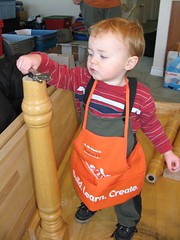Setting aside a little cash from every paycheck that you take home isn't the only way to start saving money. It’s often said that the best defense is a good offense, which also applies towards cutting expenses and giving yourself a little extra spending money throughout the year. For example, many people don't realize just how much money there is to be saved by taking a look around the house and performing routine maintenance. Little issues, like air leaks and bad valves, are already costing you more money than they should on a regular basis. Get your home efficiency maximized this winter to really get the most out of your maintenance budget.
Check Your Gate Valves
One of the first things you should do at the start of every year is check your gate valves, which have a tendency to deteriorate over time. If your gate valves are leaking, they're going to need to be replaced. Doing so can save a great deal of money on your utility bills.
Change Your Furnace Filter
Regularly changing your furnace filter will allow it to run for longer periods of time in a more energy efficient way, which will in turn cost you less money on of your gas or electric bill (depending on what type of furnace you actually have).
Start Your Ceiling Fans
Using your ceiling fans to cool down during the summer is one thing - using them properly is something else entirely. Using your fans in conjunction with the air conditioner in the summer is a great way to circulate cool air, allowing you to keep the AC set at a higher temperature. In the winter, use your ceiling fans to circulate warm air throughout the room to cut down on your heating bill. This winter, clean off those blades and get them started back up to start saving.
Change Old Water Fixtures
Most older water fixtures, like the kind that come pre-installed in older homes, aren't really designed to conserve water. By installing low-flow water fixtures you can use less water every time you turn on the fixture and, in turn, start immediately saving money on your monthly bills.
Winterize Your Windows
Winterizing your windows cuts down on both cold air coming into your home and warm air escaping. The temperature in the room will remain consistent, which allows that room to be heated in a much more energy-efficient way.
Double Check Your Plumbing
Test your toilets for leaks at the start of the year. Identifying a small problem in January can prevent it from becoming a huge problem later on.
Maintain Your HVAC
Have your heating and air conditioning system tested early in the year to make sure that everything will be working at peak efficiency when it's really needed. There's nothing worse than trying to turn on the AC on a hot summer day and finding out that it doesn't work. If you need to replace it, look for a high efficiency model.
Fill Cracks and Leaks
Cracks and leaks should always be fixed early on when they're still small. A small crack in a wall now will turn into a large, more expensive crack later if you're not careful. Air leaks also decrease your heat and air conditioner efficiency.
Consider Automatic Sprinklers
Automatic sprinklers are a much more water-conscious way to water your lawn and flowers. They're also just a lot more convenient than traditional sprinklers. You won’t be able to install them until the spring, but picking a system out now can save you time once the ground thaws.
Test Your Water Heater
Testing your water heater will help quickly identify any small leaks that could turn into big problems throughout the year.
Clean Your Carpeting
Cleaning your carpets regularly will help prolong their overall lifespan and will thus spare you an expensive replacement.
Maintain Landscaping
Performing regular maintenance on your trees can help prevent cracked or damaged limbs from falling onto your home, cars or other pieces of property. Especially in the winter, you’ll want to check branches that appear to be dead or partially broken. The extra weight of snow can cause them to fall onto your home.
Check Vents
Make sure that you adjust all heating and cooling vents in your home when the season changes. They need to be set in one direction during the winter and the opposite during the summer for maximum efficiency.
Keeping up with routine maintenance around your home won't necessarily put more money in your pocket right away. What it will do, however, is prevent small problems from turning into big ones down the road. A small problem in January that would cost $25 to fix could easily balloon into a large problem that will cost $500 or more to fix come August. In that regard, keeping up with issues in and around your home as they're happening isn't just the smart thing to do – it also comes with a huge financial benefit.








Leave a Reply: